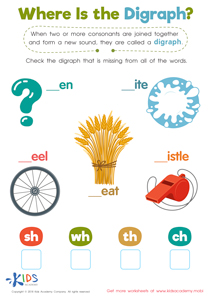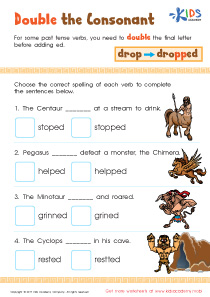Normal Beginning Consonants Worksheets for Ages 3-4
9 filtered results
-
From - To
Help your little one master the alphabet with our Normal Beginning Consonants Worksheets for Ages 3-4. Perfectly designed for preschoolers, these engaging activities introduce early learners to the sounds that letters make at the start of words. Our vibrant and interactive worksheets feature fun visuals and easy-to-follow exercises, ensuring that young minds stay captivated while developing foundational literacy skills. Give your child a head start in reading by strengthening their phonemic awareness and boosting their confidence with these effective, entertaining printables. Start the journey toward reading success with our specially-crafted consonant worksheets today!


Vowel and Consonant Sounds: Assessment Worksheet
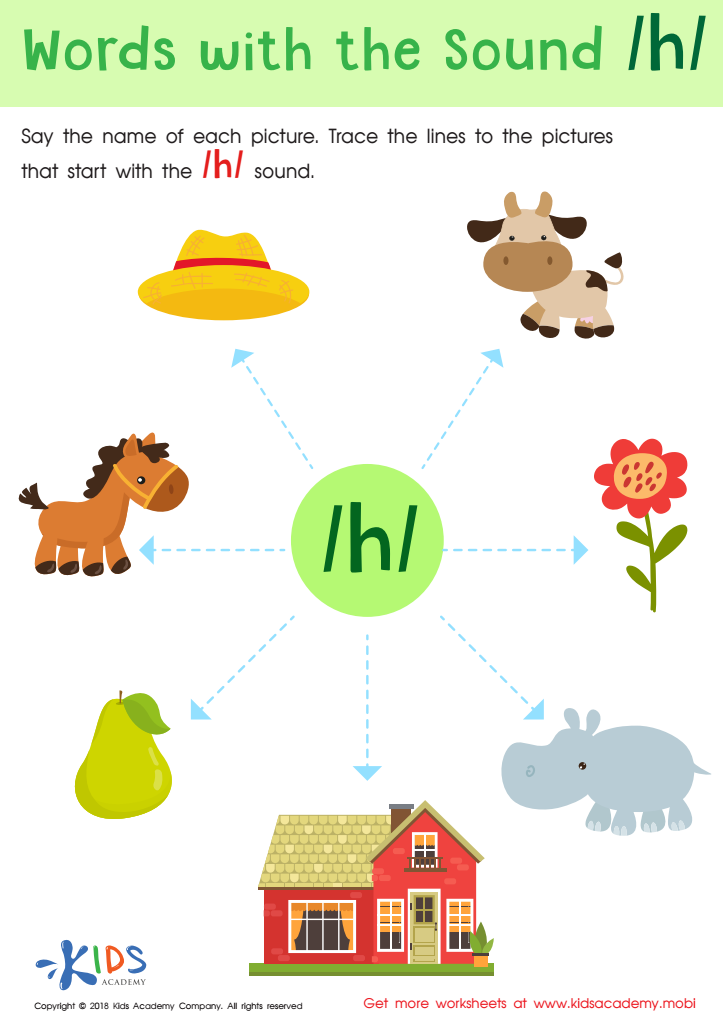

Words with sound h Reading Worksheet


Twin Onset Worksheet
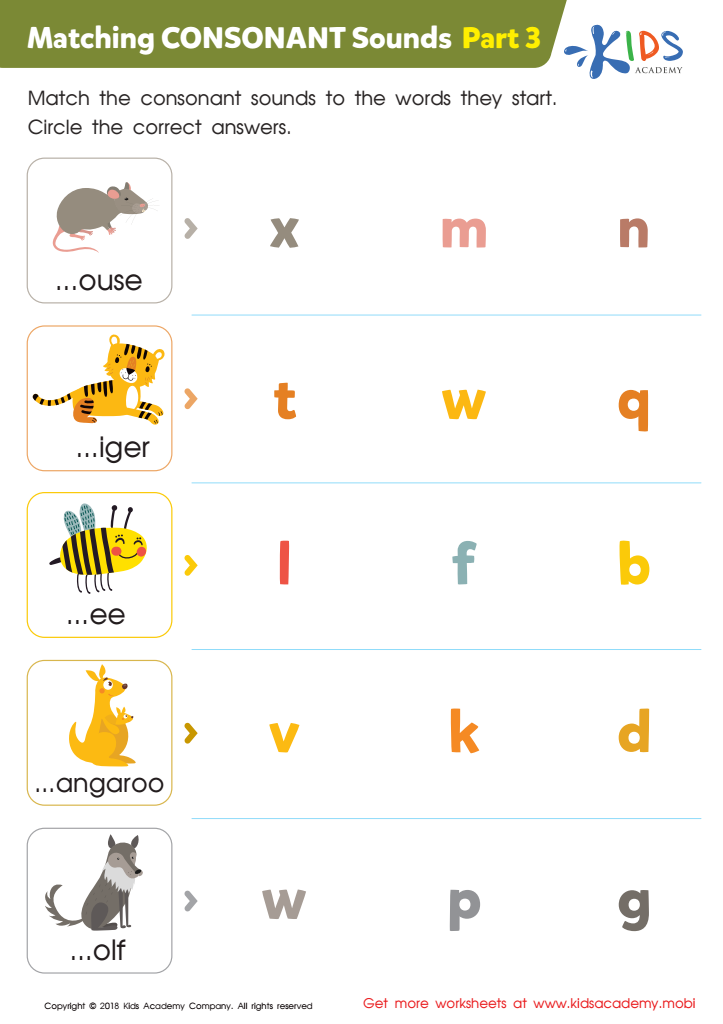

Matching Consonant Sounds: Part 3 Worksheet


Words with sound p Reading Worksheet
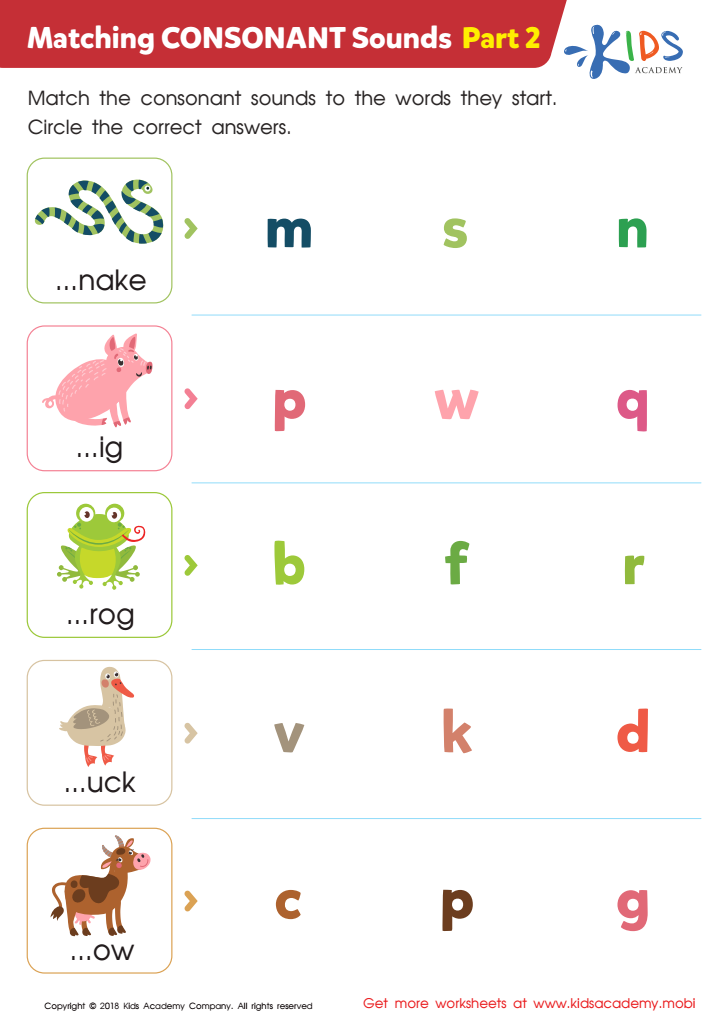

Matching Consonant Sounds: Part 2 Worksheet


Words with sound f Reading Worksheet
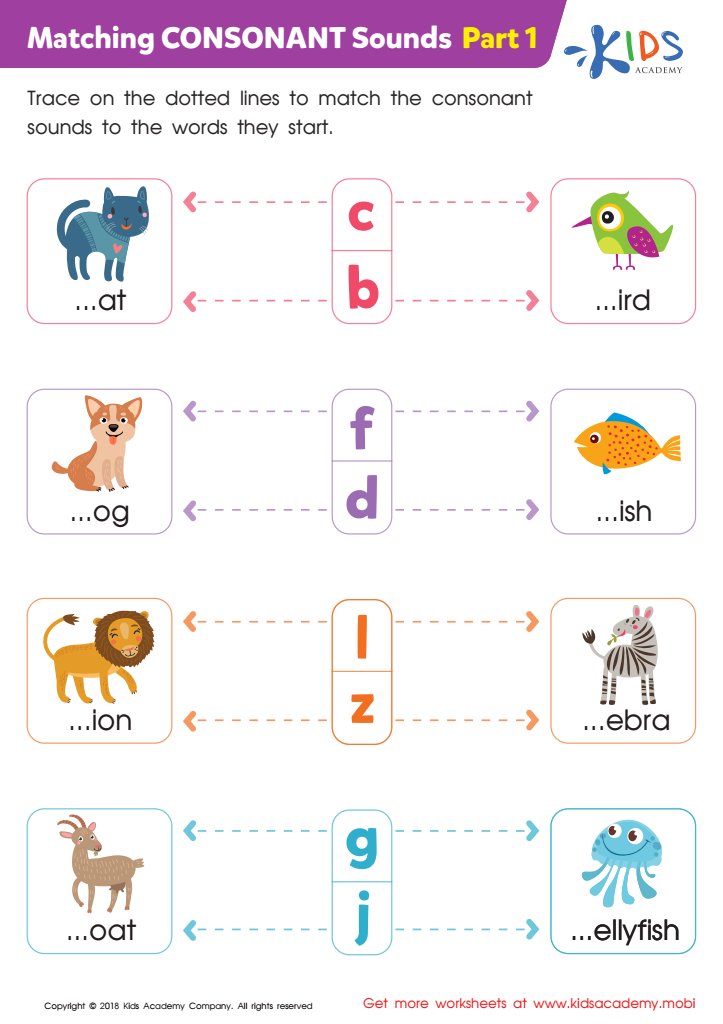

Matching Consonant Sounds: Part 1 Worksheet
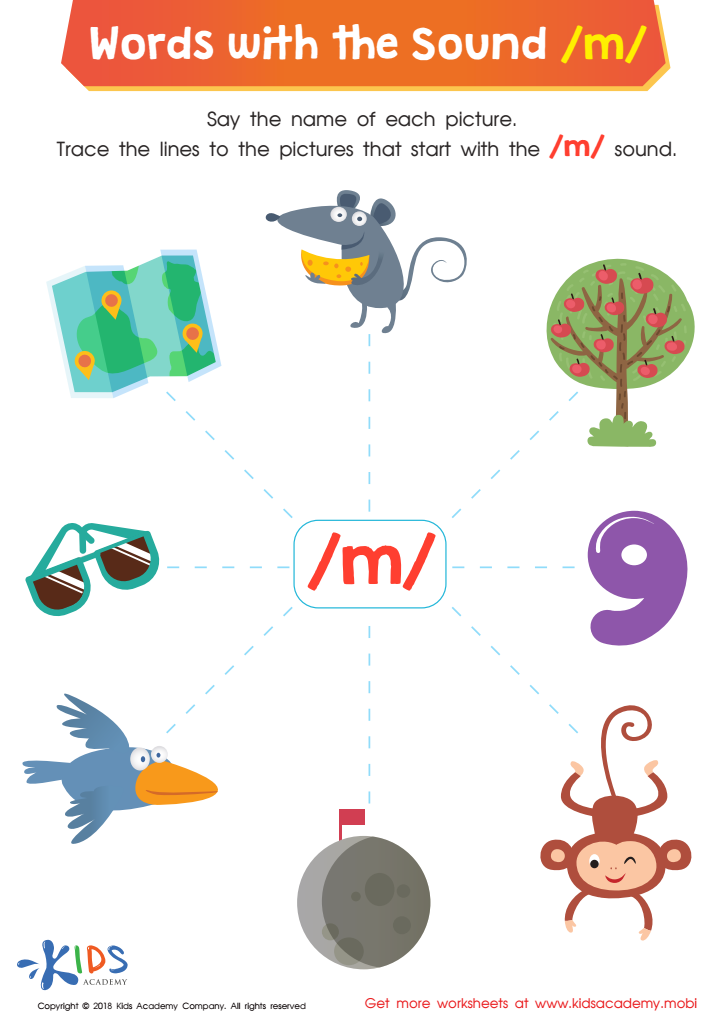

Words with Sound M Reading Worksheet
The early years of a child's life form the foundation for their future learning and development, and understanding normal beginning consonants for ages 3-4 plays a critical role in this process. At this age, children are rapidly developing their language and speech skills. By focusing on beginning consonants, parents and teachers can assist in reinforcing pivotal phonemic awareness, which is an essential precursor to reading. Phonemic awareness helps children recognize and manipulate sounds in spoken words, fostering early literacy skills.
Moreover, supportive adults who pay attention to beginning consonants can identify potential speech or language delays early on. Early detection allows for timely intervention, greatly increasing the effectiveness of any remedial steps. Additionally, engaging with children over these consonants can make language learning more interactive and enjoyable, boosting their confidence and enthusiasm for continued learning.
Overall, emphasizing normal beginning consonants in children aged 3-4 nurtures their speech clarity, aids early literacy development, enables early detection of language issues, and promotes an enriched learning environment that can set children on a successful academic path. By investing in these foundational skills, parents and teachers help cultivate proficient, confident communicators.

 Assign to the classroom
Assign to the classroom
